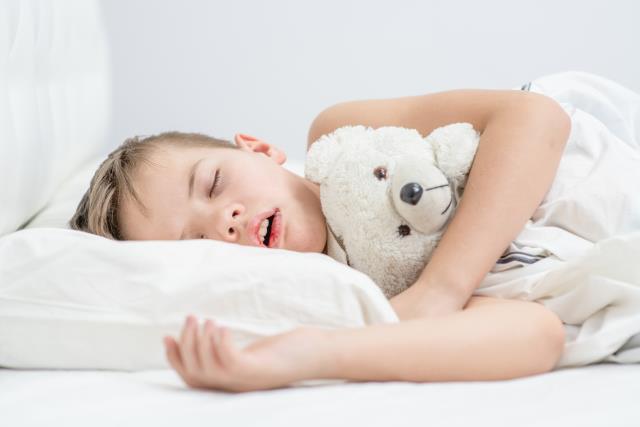Sleep habits change as children grow, but a misalignment between the amount of sleep needed and the actual sleep obtained can lead to problems like anxiety, low mood, and underperformance in school – not to mention the impact it can have on the entire family’s functioning.
As the sun sets and it becomes dark, the body’s homeostatic sleep drive sets in and melatonin is produced – a chemical in the brain that helps a person fall asleep.
In younger kids, problems in settling to sleep and waking in the middle of the night are the most frequent sleep problems.
Difficulties in sleep onset can be due to an altered body clock associated with a delayed melatonin peak and/or decreased melatonin output – seen in some children who are on the autistic spectrum, or due to prolonged exposure to blue light from screens.
It can also be due to sleep anxiety or fear of dark/sleeping alone in little kids, while older kids might lie in bed and ruminate over their worries.
Chronic sleep deprivation is reported in 70 percent of Aussie teens, attributed to late sleep onset, primarily due to high screen times.
Sleep deprivation impacts not only physical health – leading to lethargy and tiredness in the daytime – but also affects behaviour and can lead to anxiety, low mood, and underperformance academically or at work.
Tired, irritable, and emotionally and mentally vulnerable teens are more inclined to opt for unhealthy, high-carb, fatty foods.
Coupled with sedentary lifestyle choices, not going out into the daylight, and not getting enough physical exercise, this puts them at risk of the early onset of chronic medical conditions like diabetes, high blood pressure, and obesity.
Low mood and chronic anxiety affect their mental health as well.
There are several strategies that can help improve sleep and thereby physical and mental health, and consequently academic/work performance.
Establish a consistent sleep routine, limit the use of technology before bed, and keep the bedroom dark, quiet, and cool.
Avoid stimulating foods or drinks, like caffeinated beverages, or heavy exercise late in the evening. Instead, engage in quiet activities before bedtime.
Encourage separation of screens from the bedtime routine – no technology at least one hour before bedtime.
For younger kids, consider reward systems for adhering to sleep schedules or staying in bed, visual schedules for understanding sleep routine, and age-appropriate mindfulness or relaxation practices for anxiety.
If sleep problems persist or are associated with daytime behavioural or cognitive (memory/focus/logical thinking) difficulties, it might be necessary to see a healthcare
professional to rule out any medical conditions that could be affecting sleep.
It could also be worth considering medication for a short time, if necessary, while establishing good sleep habits.
Good sleep is essential for physical and mental health, so address any sleep problems in children and young people as soon as possible.
I’m optimistic that with these interventions, we can improve both their sleep quality and overall health.
Dr Charanjit Kaur,
Pakenham paediatrician








